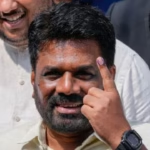Khaleda Zia: A Comprehensive Look at Bangladesh’s First Female Prime Minister
Khaleda Zia, born on August 15, 1945, is a prominent Bangladeshi politician who has played a significant role in the country’s political landscape. She is the widow of former President Ziaur Rahman and the leader of the Bangladesh Nationalist Party (BNP), a major political force in Bangladesh.
Zia made history as the first woman to serve as the Prime Minister of Bangladesh, holding office from 1991 to 1996 and again from 2001 to 2006. Her tenure saw both significant achievements and substantial controversies. She focused on economic reforms and infrastructure development, striving to modernize the country’s economy. Her administration undertook various projects aimed at improving the country’s infrastructure, which included road and bridge construction and efforts to enhance the energy sector.
However, Zia’s time in office was not without criticism. Her administration faced accusations of corruption and political repression, issues that have long plagued Bangladeshi politics. The allegations of corruption were a significant point of contention, and her governance style was often described as authoritative.
After her tenure as Prime Minister, Zia continued to be an influential figure in Bangladeshi politics, despite facing numerous legal challenges. In 2018, she was convicted of corruption, a verdict that her supporters claim was politically motivated. This conviction has had a profound impact on her political career, leading to her imprisonment and further legal battles.
Despite these setbacks, Khaleda Zia remains a pivotal figure in Bangladesh. Her political journey reflects the complexities of Bangladeshi politics, marked by periods of progress and significant challenges. Her leadership and the controversies surrounding her tenure continue to shape the political discourse in BanKhaleda Zia: A Comprehensive Look at BanKhaleda Zia, Bangladesh politics, BNP, Bangladesh Nationalist Party, female leaders, Prime Minister of Bangladesh, Ziaur Rahman, Bangladeshi history, political controversies, economic reforms, infrastructure development, corruption charges, political repression, Bangladeshi leaders






